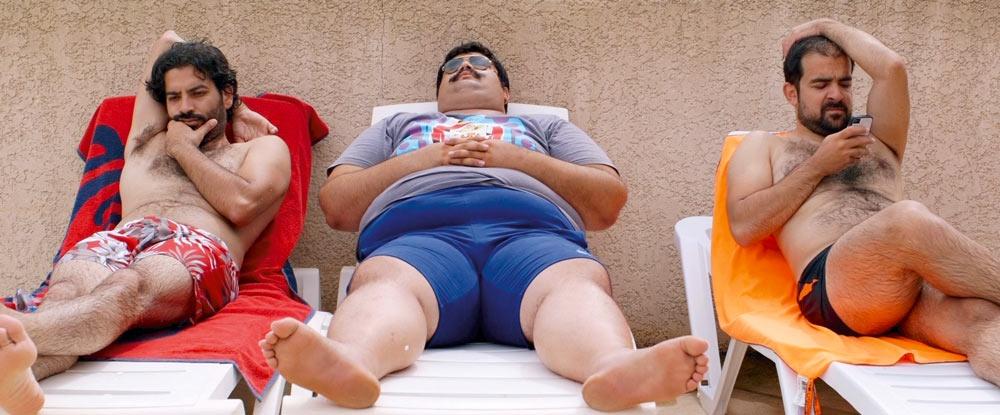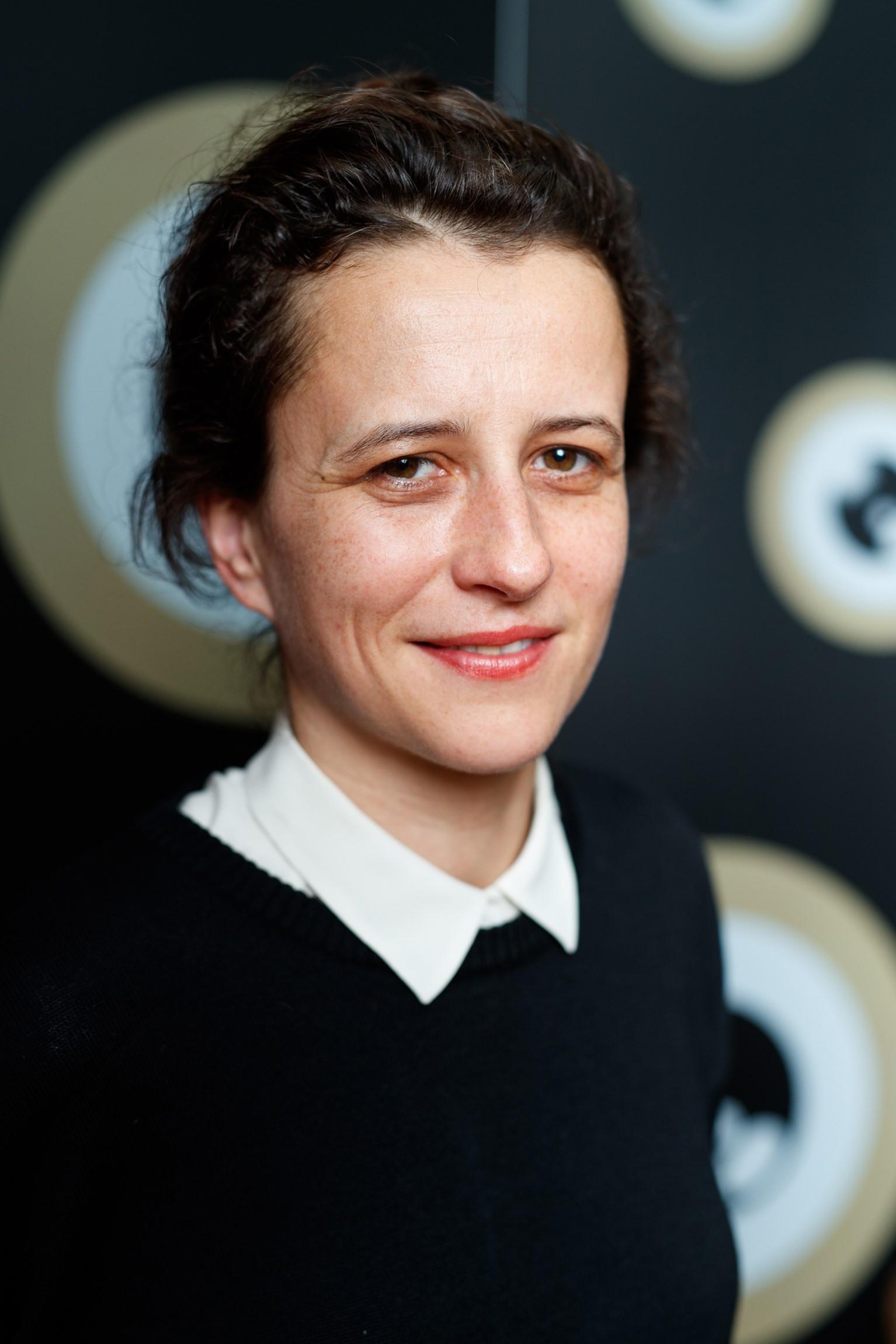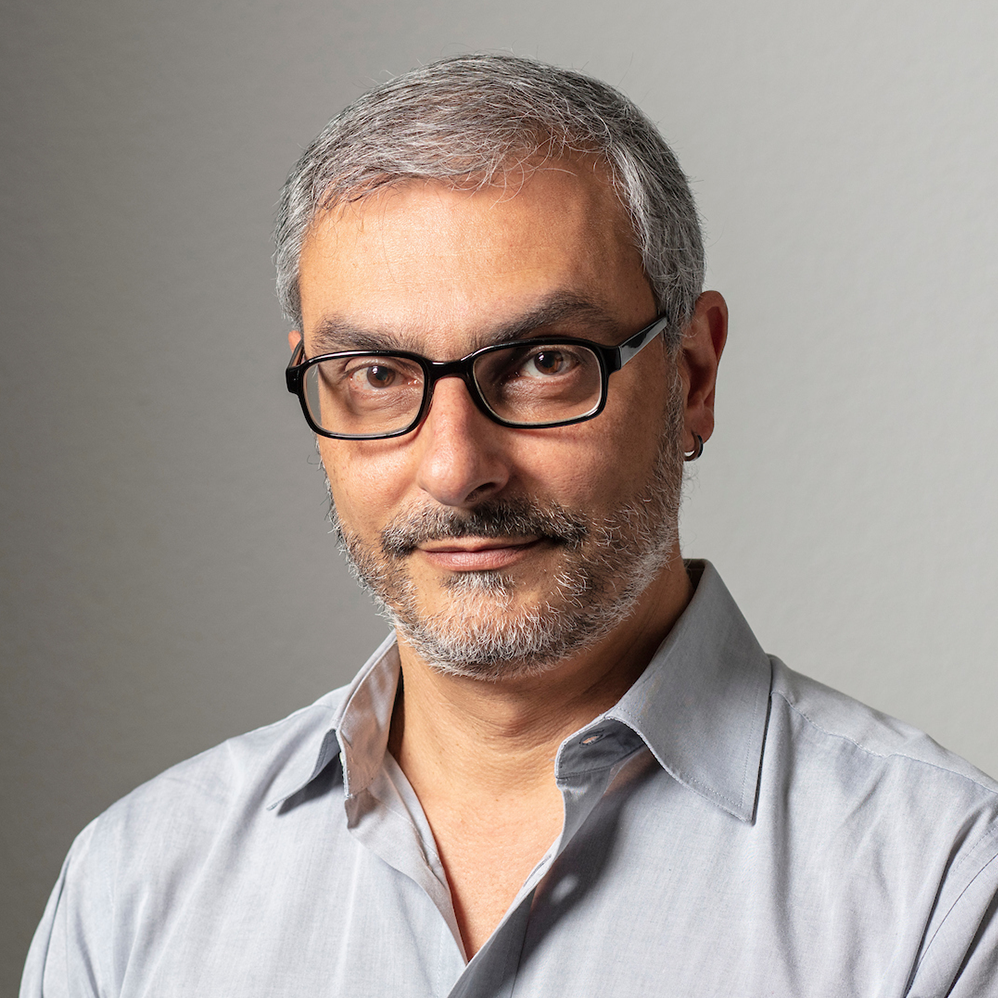
Switzerland is no longer a cinematic island

The traditional image of Swiss cinema lies on the cutting room floor. International co-productions have become the norm and a significant number of young film-makers have an immigrant background or were born abroad. Many live and work outside Switzerland.
Of the 15 Swiss films recently shown at the 13th Zurich Film Festival (ZFF), only a third were made by Swiss directors living in Switzerland.
“People talk a lot about Swiss cinema here in a very nationalistic way. But I’m not nationalistic at all in my perception of the world,” Berlin-based Katharina Wyss, director of “Sarah joue un loup-garou” (Sarah Plays a Werewolf), her first feature film, tells swissinfo.ch.
“That said, my film is very ‘Fribourgeois’: it’s geographically and personally based around Fribourg; it’s nurtured by the city I come from.”
“But I’m also influenced by long-established European culture, especially the German and French culture that I grew up with and which gives all my work a very European accent, in contrast to American cinema,” she says.

Wyss left Switzerland for Berlin at the age of 19, like so many in creative professions who quickly feel that Switzerland is too small and insular for their artistic interests.
“They are not just many, they are probably the majority,” says producer Luc Peter of Geneva-based Intermezzo Films when asked about Swiss film-makers who live and work abroad.
The need to leave
In addition to Wyss’s film, Peter brought another breath of fresh cinematic air to the ZFF: “Avant la fin de l’été” (Before Summer Ends), the first feature by Maryam Goormaghtigh, a Franco-Belgian-Swiss-Iranian (not necessarily in that order!) director.
“I hardly knew anything about Swiss cinema – I only became familiar with it when I was living in Paris. Maybe it’s because my parents have always been foreigners: they still have a C permit [a long-term residence permit],” she says.
“In Paris I began to make some co-productions with Switzerland and thus I came to discover how the Swiss system works – and how different it is from the French industry.”
Goormaghtigh is the Flemish name of her father, a Franco-Belgian who married an Iranian and lives in Geneva, where Maryam was born and raised. She left Switzerland at 22 to study in Brussels and then moved to Paris.
“I really needed to leave Switzerland and to discover other countries – which is normal when you’re young. And Geneva feels quite boring as a city. But now, after many years in Paris, I’m very happy to move back, especially because it’s calm and peaceful,” she says.
Displacement
“Fell in Love with a Girl”, by the American-Swiss Kaleo La Belle, also stands out. It’s a deeply personal documentary, with family as a theme, that took over seven years to make.
“I believe the difference comes from the motivation. It was not about making my life into a theme, but about recognising certain themes in my life that were important or made it relevant to the general audience,” La Belle tells swissinfo.ch between screenings.
For someone who was born in Hawaii, lived in New York and Detroit, and moved to Switzerland 20 years ago, moving from place to place is just a natural condition which should not be subject to feelings of nostalgia or exile. “Home is where my bed is,” says La Belle, whose bed is now in Zurich.
La Belle says that when he moved to Lucerne 20 years ago, he soon realised that “Switzerland had no content for me, my content was elsewhere”.
However, his work is not out of sync with current Swiss production – Swiss cinema excels in documentaries more than in any other domain.
Documentary strength
Goormaghtigh’s work is a French-Swiss co-production, in which three Iranian friends living in France hit the road on a sort of farewell to one of them, Ashraf, who has got fed up with Europe, is deeply homesick and decides to return to Iran.
The film is a scripted documentary that blurs the usual genre conventions: Goormaghtigh spent three years with the three young men, registering their lives as immigrants until Ashraf decided to leave, providing a narrative motif to kickstart the film, during which they all try to convince him to stay in France.
Another example is “Gentrifizierung bin ich” (I Am Gentrification) by Thomas Haemmerli, a hilarious documentary in which the author traces his own path from a commune squatter and radical agitator in the 1970s and 1980s to a self-described petite bourgeoisie agent of gentrification in Mexico City, São Paulo, Zurich and Tbilisi.

Meanwhile, in fiction…
The Swiss fictional film scene is more fragmented and its ability to reach larger audiences abroad more limited.
Lisa Brühlmann’s “Blue my Mind” (winner of the ZFF Focus: Switzerland, Germany, Austria Award) and Juri Steinhart’s “Let the Old Folks Die” may strike a chord within Switzerland but may struggle beyond the country and, technically and dramatically, smack of film school graduation projects.
One still can find some gems among the Swiss productions – Rolf Lyssy’s latest, “Die letzte Pointe” (The Final Punchline), is a good example – but international collaborations are Switzerland’s strength. And the subject matter can still be very Swiss.
Wyss’ “Sarah joue un loup-garou”, a German-Swiss co-production, is probably one of the most disturbing films of this genre as it deals with an ancient Swiss “malaise” whose symptoms are well known and not limited to Switzerland: abuse, suicide, moralism and sexual taboos.
While La Belle explores the construction of new forms of family, Wyss implodes the traditional one.
“The Swiss family has been a small universe very concerned with having a well-functioning image – the fear is that if there is a negative image on the outside, the whole structure within may collapse,” she says.
This, she explains, could be a metaphor for the country. “Switzerland has also been in a very fragile position, surrounded by great powers, having to devise cunning strategies to survive. But it has a cost: a paranoid state of existence – like we’re always living in the expectation that something dreadful is about to happen – because it’s already happening next door.”
Wyss says she is extremely attached to Berlin and its ghosts – her next film is a spy story – but she is glad to make use of her Swiss upbringing in the development of a personal style that deals both with tradition and rupture. Her visual references include notoriously sombre Swiss artists like 18th- and 19th-century romantics Arnold Böcklin and Henry Fuseli and the Alien-film designer HR Giger.
Charm offensive
The darkness of the mind is also very present in Greg Zglinski’s “Animals”, a Swiss-Polish-Austrian co-production. The psychological thriller could easily be a Roman Polanski film.
“Animals” was enthusiastically received by the festival audience and is one the Swiss films chosen to travel to several festivals around the world.
This charm offensive, supported by the Swiss government, will soon be at the São Paulo International Film Festival in Brazil, starting on October 19. swissinfo.ch will be there.
Switzerland has a long tradition of documentary film-making and a broad variety of financing channels: state funding is available at federal, cantonal and municipal level. There is also the Pro Helvetia cultural fund, private foundations, banks and art schools.
Funding usually comes with very few strings attached, giving film-makers lots of creative free space. This is not the case in many other places, such as the United States, where cable and online channels, be it HBO, Netflix or National Geographic Channels, assume absolute control of the projects, including the right to fire the director or creator if he or she doesn’t conform to the executives’ demands.
The only flaw in the Swiss system, according to practically all the directors and producers swissinfo.ch talked to, is in distribution. Most of the support comes in the production phase, but the funding institutions and even Swiss television, which supports a sizeable number of documentary films, do not provide concrete bases for distribution. That means an enormous chunk of Swiss film production doesn’t reach the public.

In compliance with the JTI standards
More: SWI swissinfo.ch certified by the Journalism Trust Initiative















![The four-metre-long painting "Sonntag der Bergbauern" [Sunday of the Mountain Farmers, 1923-24/26] had to be removed by a crane from the German Chancellery in Berlin for the exhibition in Bern.](https://www.swissinfo.ch/content/wp-content/uploads/sites/13/2025/12/01_Pressebild_KirchnerxKirchner.jpg?ver=f05a5a9c)















You can find an overview of ongoing debates with our journalists here . Please join us!
If you want to start a conversation about a topic raised in this article or want to report factual errors, email us at english@swissinfo.ch.